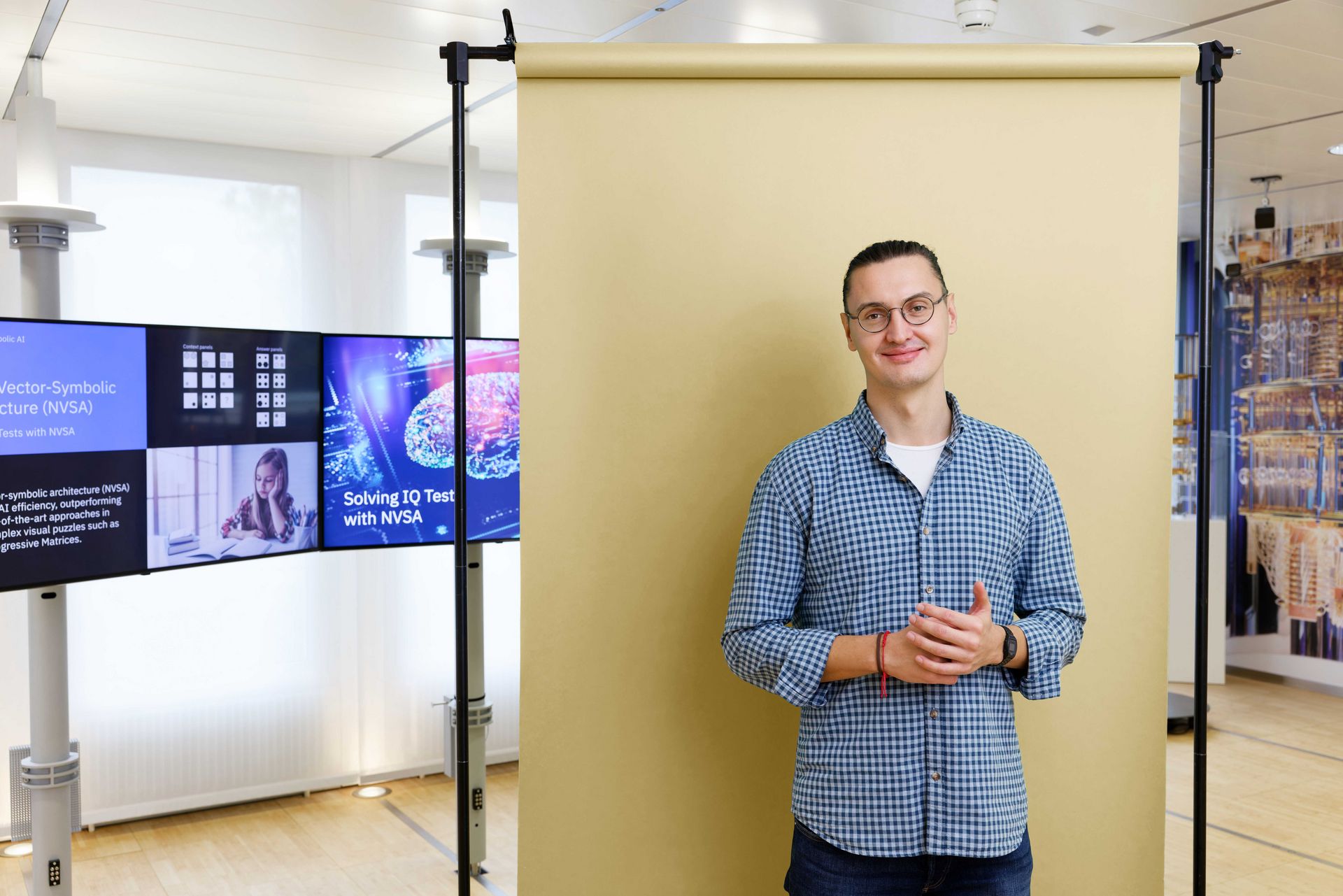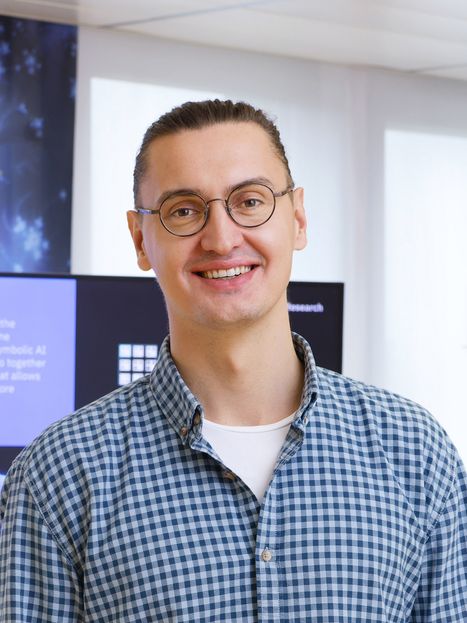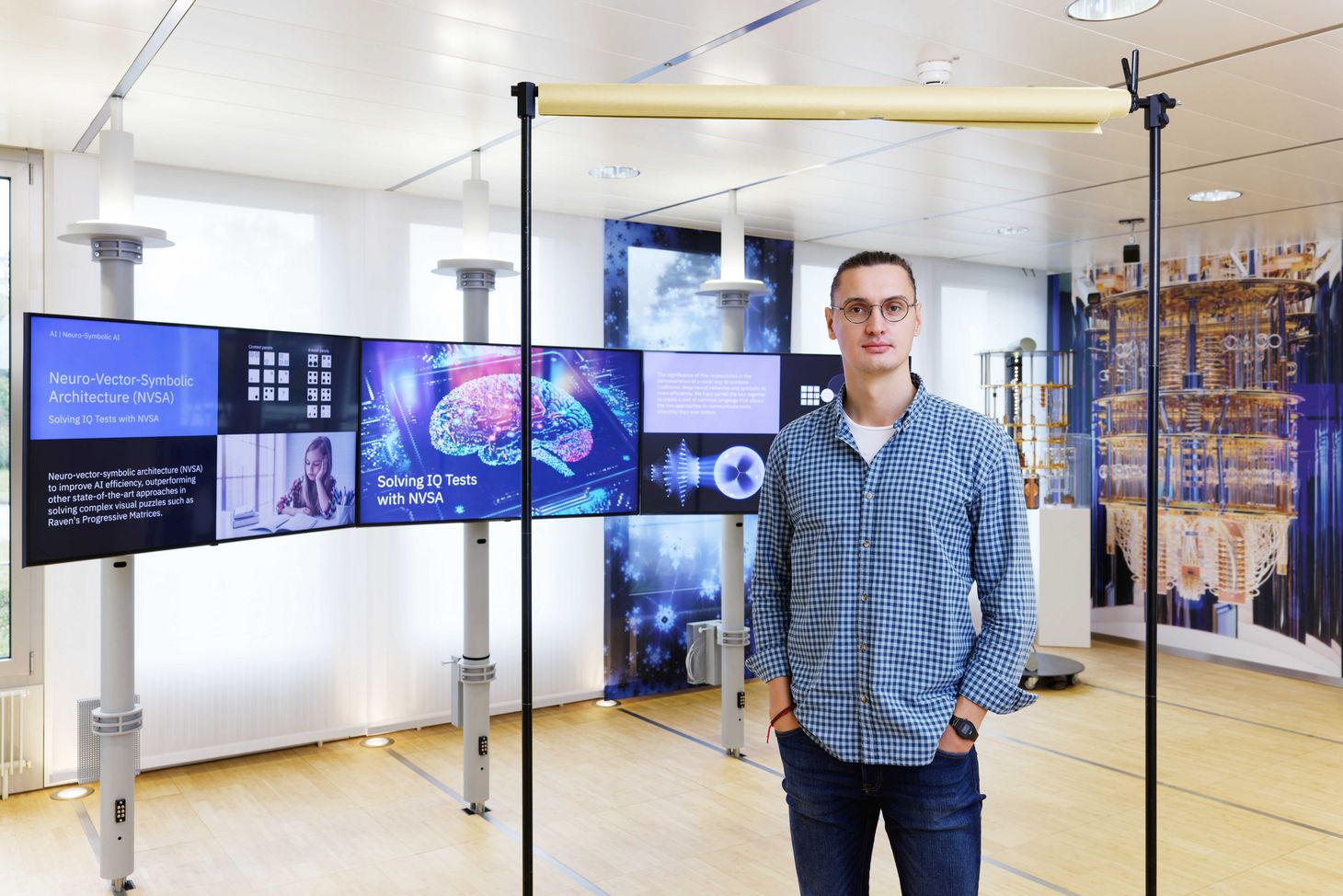News

A roundabout way to the cryptography department
Roman Bögli’s interest in IT first began during his apprenticeship in a commercial training programme. After earning his certificate, he changed his career track, earned a university entrance qualification—and is now studying for a master’s degree in computer science. A Werner Siemens Foundation Excellence Scholarship is supporting him in this endeavour.
Roman Bögli claims that, until recently, he barely knew what a doctorate or a PhD was. While that’s likely an exaggeration, it’s also symbolic for the career path he has followed thus far. Bögli, now twenty-eight years old, is studying for a master’s degree in computer science at the Eastern Switzerland University of Applied Sciences. In 2023, he received a Werner Siemens Fellowship, which the Swiss Study Foundation awards to outstanding students. But whereas many recipients of the Fellowship look back on a very straightforward path towards an academic career, Bögli’s has been more of a winding road.
He grew up in Zufikon, in the Canton of Aargau, where he and his older brother shared a floppy disc computer—mainly for gaming. “My brother liked messing around with electronic components already as a kid. I wasn’t much interested in technical things—maybe because I wanted to be different from him,” he explains. Nor was school a major priority for Bögli. Indeed, although he was a good student, he decided not to attend the university-track school, instead opting for a regular secondary school and then completing a commercial apprenticeship at an industrial company.
IT teacher as mentor
His experiences at business school—which he attended as part of his apprenticeship— is what led to his current life as a student in a master’s programme. “I realised that IT came naturally to me, it was all very logical,” Bögli explains. He attended an elective course led by a teacher who also ran an IT firm. The teacher saw that Bögli was gifted and offered him encouragement—and a job at his firm after Bögli completed his apprenticeship. Bögli was happy to accept the position, which is where he first learned how to programme. He also went back to school to earn the federal vocational baccalaureate and began studying at the University of Applied Sciences and Arts Northwestern Switzerland in Basel. “Without having had the chance to explore software programming, I probably would have gone directly into a career in accounting,” he says.
During his bachelor’s degree programme, he continued working in IT, first in his former teacher’s firm, then later as a software engineer with a financial service provider. He says it was very helpful and informative to study and work at the same time. “I’d really recommend it to anyone,” he says. “If you ever get good and tired of studying, having a job is a great distraction. And the other way around.”
But his interest in his studies didn’t really take off until he spent a semester abroad in Vancouver, Canada. Afterwards, he chose the Master of Science in Engineering programme at the Eastern Switzerland University of Applied Sciences in Rapperswil, St Gallen, with a specialisation in computer science and a concentration in cybersecurity. He’s especially fascinated by cryptography and has chosen it as the subject of his master’s thesis, which he’s writing at the IBM Research Lab in Rüschlikon, Zurich. His focus is implementation options for a cryptographic tool known as a zero-knowledge proof, or zero-knowledge protocol, in connection with digital currencies. Thanks to the Werner Siemens Fellowship, he was able to leave his job last summer and can now apply himself completely to writing his thesis.
A zero-knowledge protocol is a method by which one party can prove something to another party without revealing a secret. The “Where’s Waldo” game is a good example, Bögli says. “If I want to prove to someone that Waldo is there on the page, I could just point him out. But that would give away Waldo’s precise location.” One way to avoid sharing this information is by cutting out Waldo’s silhouette in an opaque canvas, and then placing it over the page with Waldo, so that his silhouette is visible. “That proves to the other person that Waldo is there, but they still don’t know exactly where on the page he is,” Bögli says.

Potential use for mortgage applications
Another example is a cave with two entrances leading to paths that meet to form a loop inside the cave. However, there’s a locked door where the two paths connect. One person, Alice, wants to prove to another person, Bob, that she can open the door, but she doesn’t want to say how she does it. Bob stands in front of the cave and closes his eyes as Alice enters the cave through one of the entrances. Bob then calls to Alice and tells her to exit the cave using the path on the left or the right. “If Alice is lucky and on the side Bob has chosen, she wouldn’t need to open the locked door to come out on the correct side,” Bögli says. “But if they do the same thing a hundred or a thousand times and Alice always comes out on the correct side, she must have a way of opening the door inside the cave.”
In the real world, these types of zero-knowledge protocols would be ideal when applying for a mortgage. We could use them to prove our creditworthiness to a bank without having to reveal personal data.
Roman Bögli’s eyes light up when he talks about cryptography and computer science. In addition to its logical side, he also finds working with IT to be very creative. “You know what data have to be entered and what the result should be. But there are so many different ways of writing a really good software programme for everything that’s in-between.” What’s more, he says, IT is accessible for everyone. “If you want to write code, it’s easy to find instructions on the internet,” he explains, adding that he thinks it’s important to be transparent about IT knowledge and to make it available to others.
Flexible education system
When speaking to Roman Bögli, it’s easy to draw an analogy between transparency regarding IT and Switzerland’s flexible education system. He says it’s fantastic that he’s able to study in a master’s degree programme after completing an apprenticeship. And he’s also a little proud that his career is a prime example for how open the system is.
At the business school Bögli attended, his story has come full circle: quite a while ago, he began teaching the same IT course that was so decisive for his own life trajectory. And, he says, although his students use IT systems on their electronic devices from dawn to dusk—and beyond—their grasp of how these systems actually work is relatively week. He believes it would be important to start teaching IT already at primary schools: “Computer systems have become essential for everyone. But the inability to properly manage our passwords could cost us dearly.”
Indeed, to ensure safety in digital spaces, two things are needed: computer scientists who are able to use clever programs and tools to create secure passwords or Bitcoin transactions, but also users who are capable of using them safely. Roman Bögli isn’t yet sure how exactly he wants to make data security better. But now that he’s more informed about what a doctorate is, he wouldn’t mind staying a little longer in the world of academia to explore the topic.
